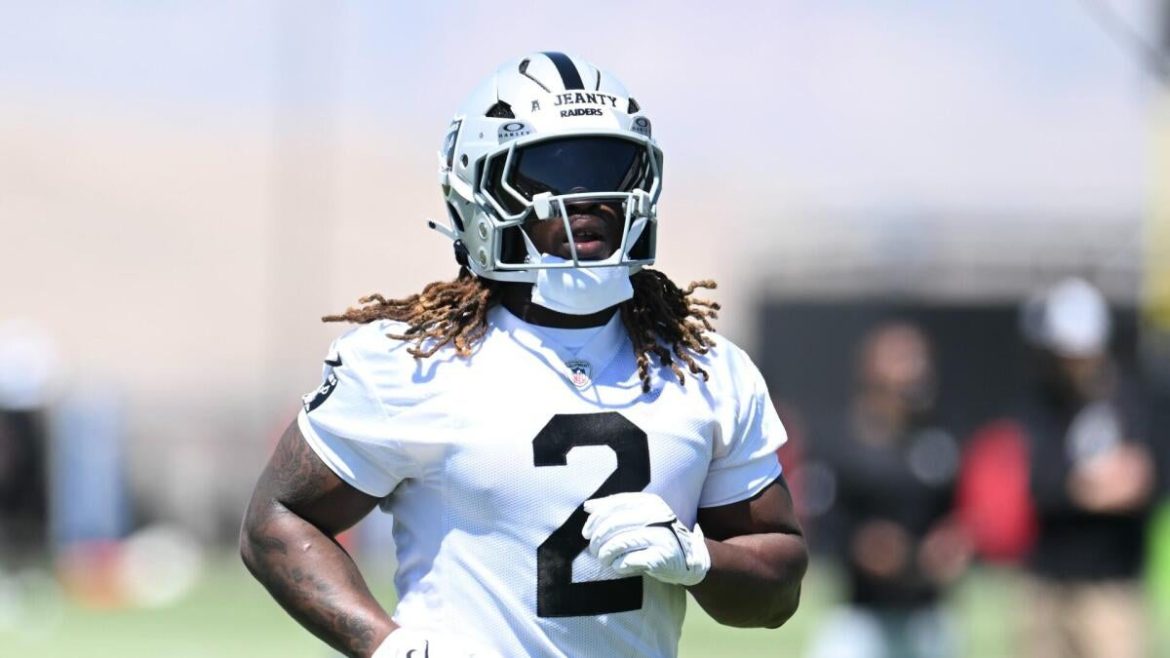Ashton Jeanty’s High-Stakes Jersey Number Acquisition: A Symbolic and Financial Statement
In the professional sports world, jersey numbers often carry weight beyond mere identification; they can encapsulate heritage, personal significance, and brand identity. Las Vegas Raiders rookie running back Ashton Jeanty’s recent effort to secure the coveted No. 2 jersey vividly illustrates this phenomenon. Jeanty reportedly paid a substantial sum to acquire this number from a veteran teammate, underscoring both the value of the number to him personally and the lengths to which athletes will go to solidify their own identity on the field.
The Backdrop: Who Is Ashton Jeanty?
Drafted sixth overall in the 2025 NFL Draft, Ashton Jeanty emerged as a promising talent from Boise State. His selection was enthusiastically received by Raiders fans and analysts alike, given his dynamic running style and potential to become the team’s workhorse back. Before joining the Raiders, Jeanty had worn different jersey numbers, including No. 7 at the Minnesota Vikings and No. 38 during his college tenure—a reminder that jersey continuity is often elusive in professional careers.
The No. 2 Jersey: More Than Just a Number
Jeanty’s determination to wear No. 2 speaks to a deeper connection than simple preference. Reports indicate that this choice is intertwined with family tradition, as he wishes to keep the number alive in his lineage. This emotional and symbolic stake in a jersey number elevates the transaction from a typical equipment change to a meaningful personal statement.
Interestingly, obtaining No. 2 was no small feat. The number was initially held by Raiders’ All-Pro kicker Daniel Carlson. To facilitate Jeanty’s acquisition, Carlson switched back to his previous No. 8 jersey, which he wore during his initial seasons with the team. This amicable exchange likely involved a significant compensation, described as a “massive amount of money” by insiders, showcasing the sometimes-underappreciated economics behind such swaps.
Financial Implications and Market Dynamics
The financial dimension of Jeanty purchasing his preferred number highlights a nuanced aspect of professional sports culture. While not officially disclosed, the “small fortune” Jeanty paid reflects an informal market for jersey numbers, especially high-profile ones. This scenario underscores how athletes leverage negotiations among themselves to secure personal branding assets. Such transactions also hint at an intersection between individual identity and commercial potential, as players often extend their on-field persona to merchandise sales and endorsements.
The demand for Jeanty’s jersey is already evident. Early indications suggest that his jersey sales have been robust, affirming the potent branding tool a chosen number can become. In a sport where fan allegiance partially manifests through apparel, the stakes of number selection are intertwined with marketing considerations.
Team Dynamics and Flexibility
The coordination between Jeanty and Carlson not only required financial negotiation but also a degree of team spirit and flexibility. Carlson’s willingness to revert to a former number suggests a cooperative locker room environment, where veteran players accommodate rookies’ preferences—especially those as highly regarded as Jeanty.
Moreover, this exchange reflects how teams manage symbolic elements with practical roster considerations. Both players now bear numbers they are comfortable with, allowing them to focus on performance while maintaining a sense of individual expression.
Addressing Historical and Fan Perceptions
The choice of No. 2 is not without its shadows; the number has been associated with a “bad history” for some Raiders fans. Jeanty’s stance demonstrates a determination to redefine that narrative, possibly imbuing the digit with renewed positivity through his future achievements. This aspect connects athlete identity with larger cultural and fan-based narratives within sports franchises.
The Journey Ahead for Ashton Jeanty
Jeanty’s journey is marked by transitions—changing jersey numbers, teams, and roles—yet his insistence on No. 2 symbolizes an attempt at personal continuity amid these shifts. As he steps into a prominent role with the Raiders, expectations are high not only for his athletic performance but also for his capacity to become a franchise icon.
The commitment shown through his jersey number acquisition parallels his projected role as the Raiders’ workhorse running back, poised to solve longstanding roster needs alongside veterans like Raheem Mostert. Success on the field will cement the significance of the No. 2 jersey and transform it into a symbol of Jeanty’s legacy rather than merely a personal preference.
Conclusion: Identity, Tradition, and Commerce Intersect on the Jersey
Ashton Jeanty’s pursuit and ultimate payment to secure the No. 2 jersey epitomize the intricate relationship between personal identity, family tradition, team dynamics, and commercial realities in professional sports. This chapter in his career not only amplifies the importance athletes place on symbolic numbers but also reveals the informal economies within team rosters that facilitate such changes. Looking forward, Jeanty’s performance will not only validate his investment but could redefine perceptions of the No. 2 jersey for the Las Vegas Raiders and their fanbase, turning it into a hallmark of a new era.





